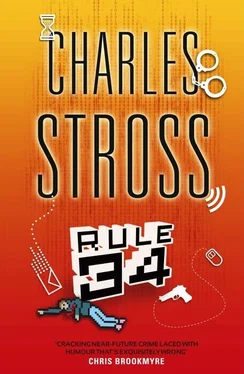On the other hand, that was before you hit your teens—and ran into crushes and BFFs and all the weirdly incomprehensible playground politics that never really made sense to you. Because your crushes were all wrong, and you were afraid to talk about them: Is she a lesbo? was about the second worst thing they could say about anyone, and you knew that if you gave them even a hint about what you dreamed about, about what made you wake flushed and sweating in the small hours, it’d be the absolute end, utter humiliation for the rest of your life.
So you giggled along with them, and learned to lie, didn’t admit to watching and rewatching Xena on video until the tapes chewed themselves up, and made a point of going to church so that when you said you believed in no-sex-before-marriage, they believed you and forgot to ask the obvious follow-on question: So who’s the lucky boy, then? You even did the Alpha course when you were eighteen, and lied enthusiastically right up until the speaking in tongues bit (which caught in your throat).
But then it was time for university. Where you met your inner Dorothy and got to know her… quite well.
Learning who you are is something every teenager goes through: But if your identity isn’t an identikit match for any of the role models on offer, it can take quite a while and take you up some strange paths on the way. You figured out you wanted to be a cop quite early—maybe it was Uncle Bert’s fault (even though he never bothered taking the sergeant’s exam), and maybe it was connected to the hard-shell uniformed image: self-sufficient, justified, not taking shit from ignorant assholes. You wanted that, you wanted it badly , and you believed in rules and telling the truth and punishing bullies. But maybe there was something else going on as well, something you didn’t understand at the time.
When you got your A-level grades and that place at university and broke away from the home-town claustrophobia for the first time, you didn’t bother joining any wishy-washy clubs and societies: You signed up for Archery and SCUBA Diving rather than the Feminists Society or LGBT Soc. You did your drinking in a pub on the wrong side of the tracks, where you unconsciously felt safe, not realizing that you were missing out on all the torrid flesh-pots of academia; and it was from the local bears that you learned about gay culture at second hand. Learned their jokes, learned their slang, learned “friends of Dorothy” as archaic code for the love that dared not speak its name (once upon a time).
You never realized that the Feminists Society was the bed-hopping club of your dreams; or that if you’d hung out in the Student’s Union on campus, you could have had your pick from the conveyor-belt sushi buffet of dungaree-wearing baby dykes in LGBT Soc.
(At least, until they learned you were studying to be a cop.)
Mary was the turning point. Portsmouth, Pompey: a naval town, going back hundreds of years—and where you get warships, you get sailors. Some of whom—you can imagine Kylie in Lower Sixth hissing it in disbelief—were lesbians . Who did not hang out around the university campus but were certainly willing to take a gawky post-teen with aspirations towards a uniformed service under their wings and teach her stuff about herself that would be a source of nostalgia many years later. Mary was blonde and friendly and brisk, and for a while you’d been her girl in port: which was good while it lasted (Twelve months? Eighteen?) and left you on a tide of tears, clutching a much better understanding of who you were going to be when you grew up.
All of which is fifteen years and more in your past, but goes some way towards explaining how you got a bona grip on Polari before anybody told you that you were the wrong kind of feminist ; why you sigh whenever you see a navy ship in the waters of the Firth; and how come you think it’s hilarious that your on-again off-again will-she-orwon’t-she nuisance lover is called Dorothy Straight.
You smell hot oil and cardamom as you walk through the front door: “Hi, Bibi, I’m home!”
She’s in the kitchen. “Yes, dear,” she calls distractedly. “Have you seen Naseem? I sent him round to Uncle Lal’s for a bunch of methi, and he’s not come back. I think he’s playing with his English friends again”—in Bibi’s world English is a wild-card ethnicity: It could equally mean Scottish or Lithuanian—“and he’s forgotten, the little scamp…”
“No, haven’t seen him.” You suppress the urge to grump at her ( What am I, his nursemaid? ) as you close the front door and hang your jacket up. The boy will be fine; you can locate him on GPS just as soon as you take the sock off your phone… “I’ve been looking for an office. I think I’ve found one.”
“Oh, good! Hey, come and be a dear and help peel these onions? You know they make me…” cry , you mentally autocomplete, suppressing a snort and heading into the kitchen. It’s one of Bibi’s stranger foibles: Despite the day job, she insists on cooking, but she can’t, absolutely can’t , peel and chop onions. (You said “no” and watched her try, just the once, years ago: The memory of what it did to her eyes is still enough to make you wince. Now she’s got a German gadget to chop them up, but getting the outer skin off first is a man’s job… where is that boy?)
You join Bibi in the kitchen, where she’s frying up spices, and take a knife to the offending onions. (It’s probably her contact lenses. Why can’t she just wear spectacles while she’s cooking?) “Your auntie Sameena called round earlier, you know? She was wanting to know all about this mystery job of yours, but I told her it was none of her business until you are good and ready to tell everyone. Trade secrets. That hushed her up, I can tell you. She watches too many trashy spy soaps from Karachi; she thinks you’re still secretly a black-hat hacker…”
You wordlessly pass her the bowl of onions. She stuffs them into the German gadget, closes the lid, and stares at you significantly as she puts some serious arm action into the handle. It’s a sign that she expects you to read her mind—she’s a firm believer in male telepathy, and you’ve never quite had the nuts to break it to her that she’d do much better at silent communication if she simply stuck to jerking your dick in Morse code. You waggle your eyebrows at her. “What is it?”
She pauses, then looks up at you. “What is this mysterious job that you need to rent an office for, oh my husband?” She’s using this oddly stilted excuse for a private language she picked up from fuck-knows-where—some Bollywood musical version of domestic married bliss perhaps—she’s even batting her eyelashes . You may be telepathically deaf, but even you can figure out that this is the feminine equivalent of boldface and double-underlined capitals.
You lean close, put an arm around her shoulder, and ask her: “Can you keep a secret, oh my wife?”
She leans against you, seeking contact, which is nice (for once, there are no kids present). “If you ask me to, nicely…”
You kiss the top of her head. “Alright. But please don’t tell your mother; she’ll get too excited.
“It’s all to do with that job interview I had last week. The one the Gnome sent my way—”
“I knew it!” She tenses angrily. “That rat!” She doesn’t pull away, but you can feel her quiver with indignation, and something inside you locks up tight.
Bibi doesn’t know your exact relationship with Adam, but he’s been around occasionally, and she doesn’t like or trust him: She knows he’s a business associate, and that’s bad enough for her—the kind of business associate whose company landed you in Saughton, she thinks. Nonsense: It was just a spot of bad luck. But needs must, and ruffled feathers need smoothing: “No, love, it’s not something I’m doing for him; it’s just something he was able to point my way. It’s not big, but it’s useful, and there’s money in it, and more importantly, it’ll convince the social workers that I’m getting my life straightened out.”
Читать дальше












